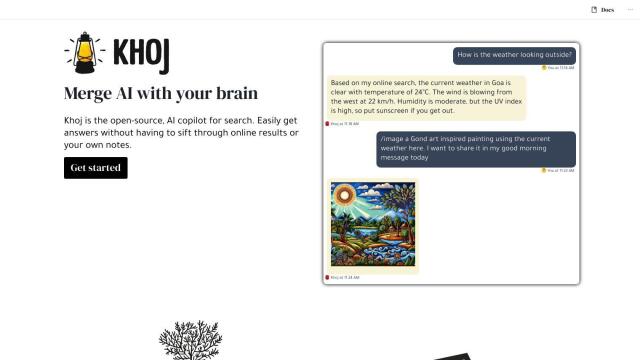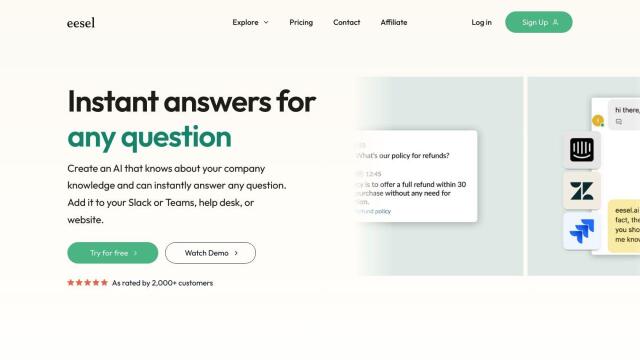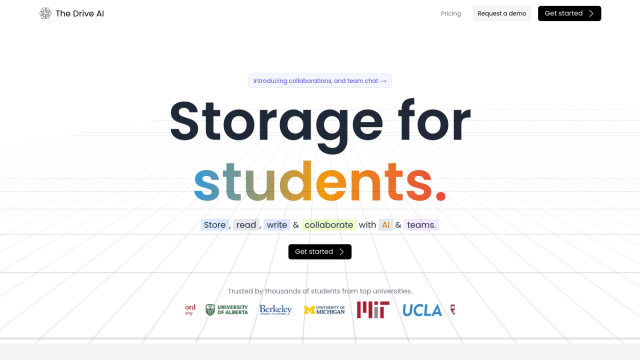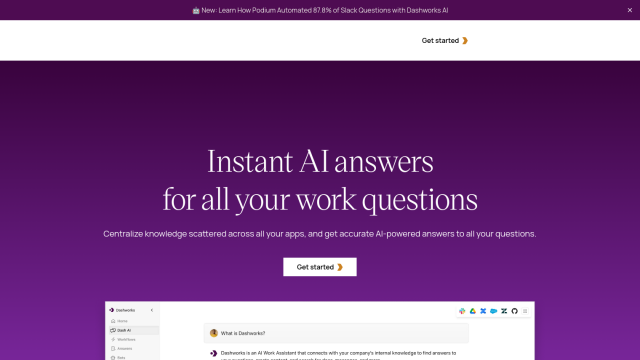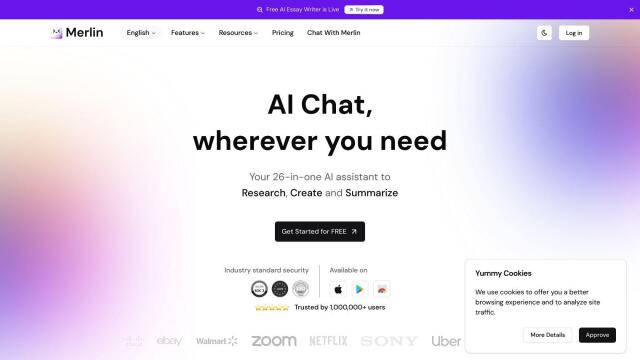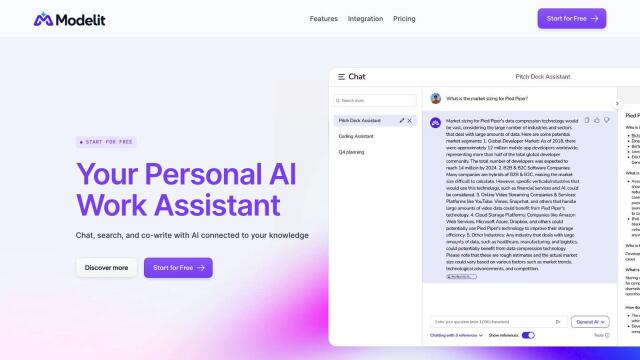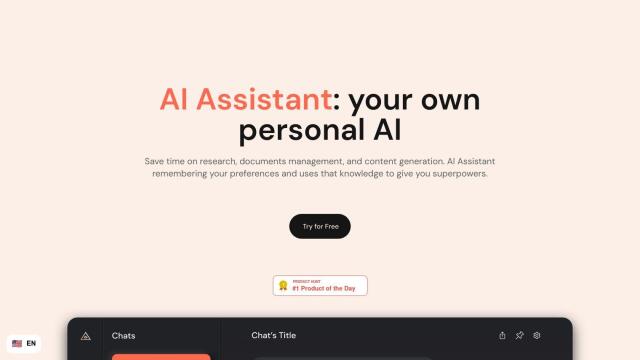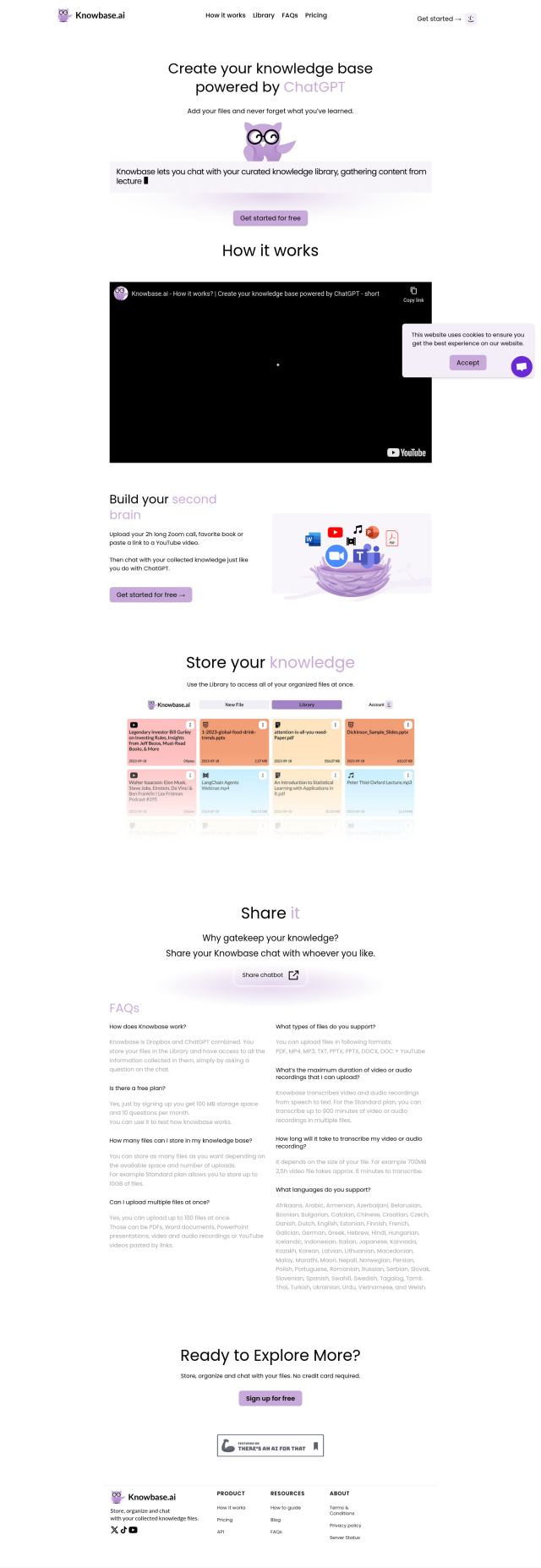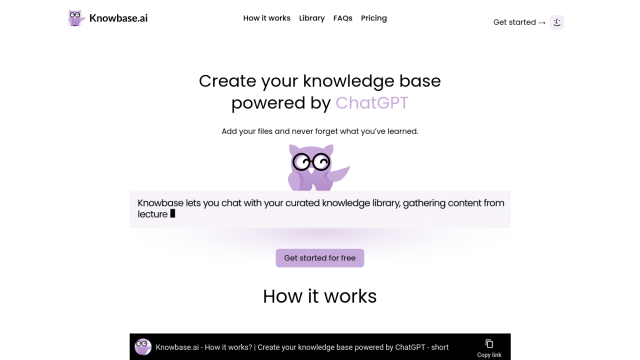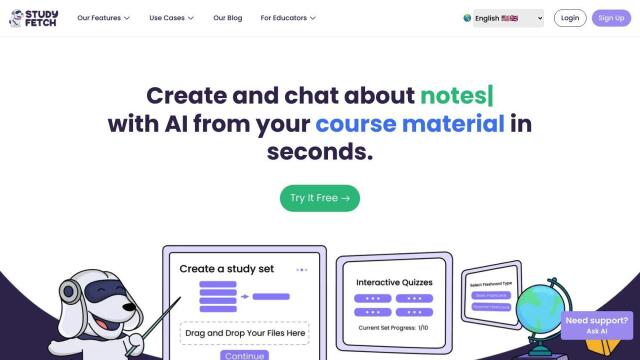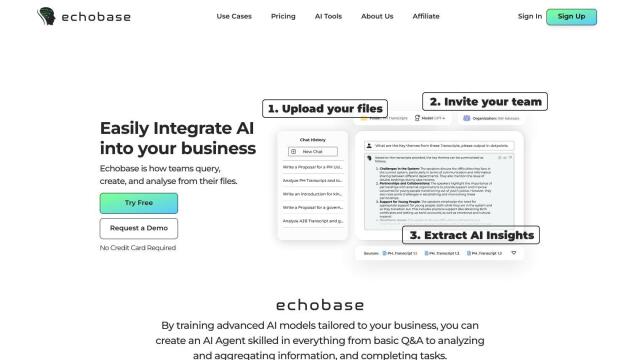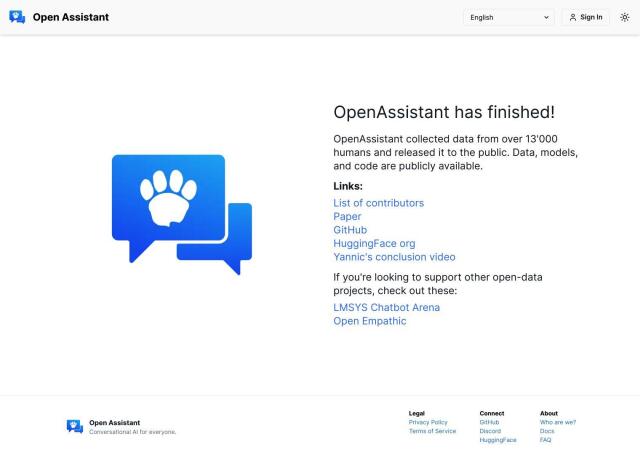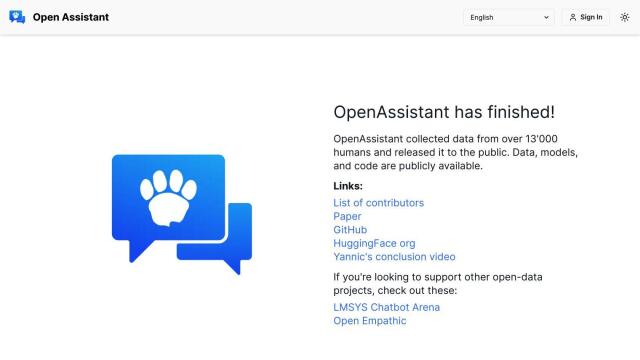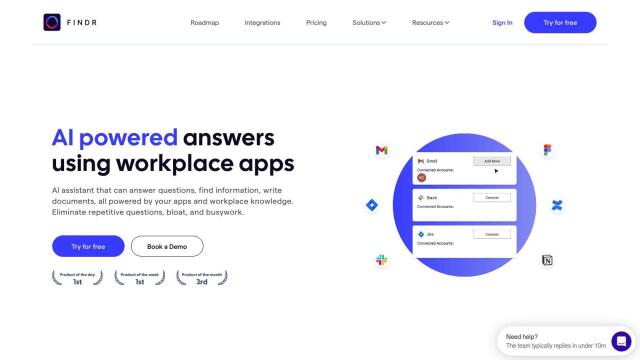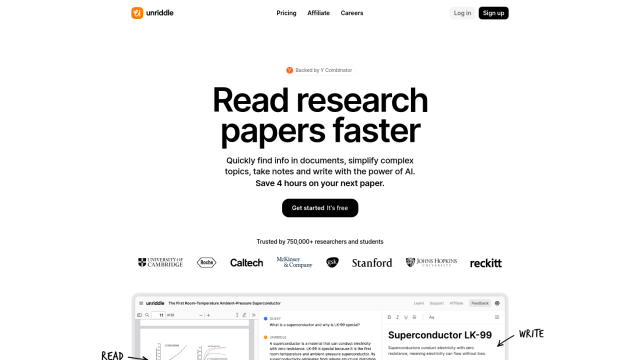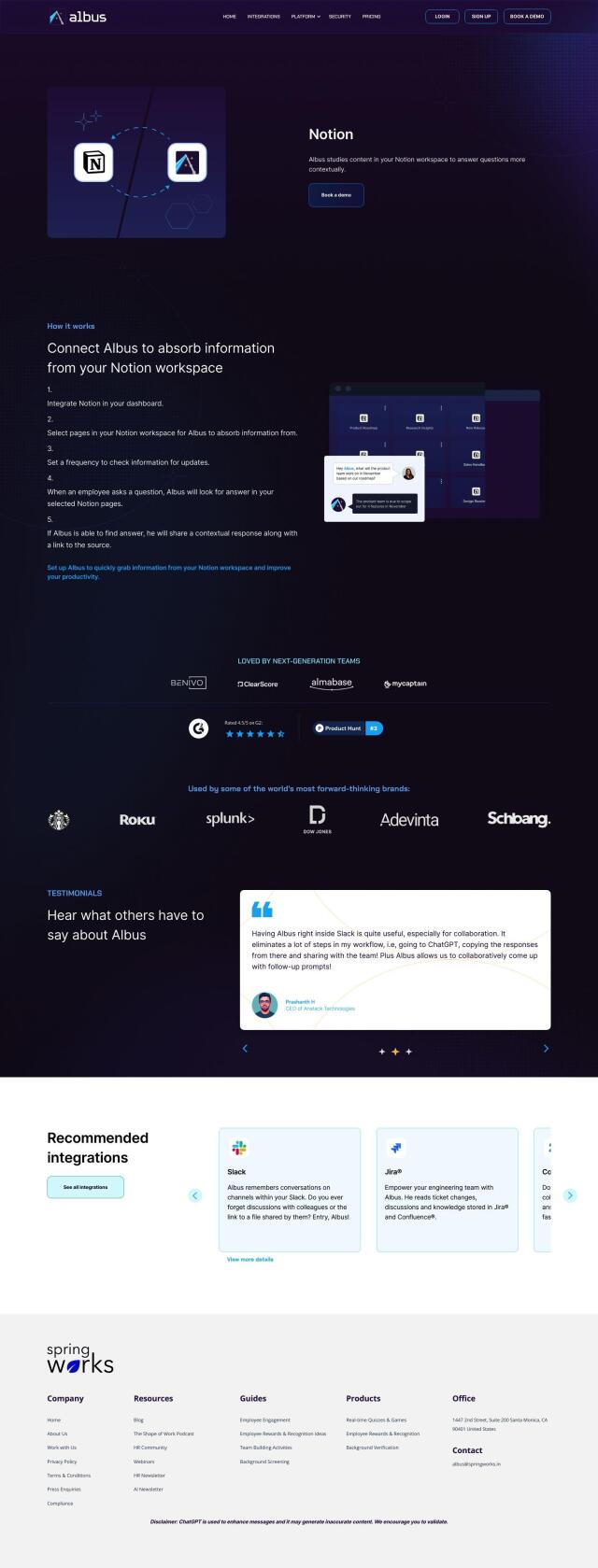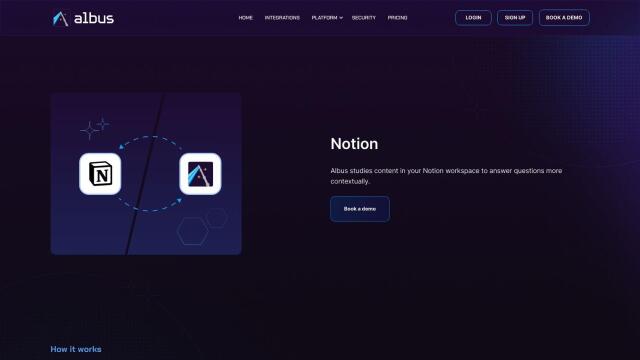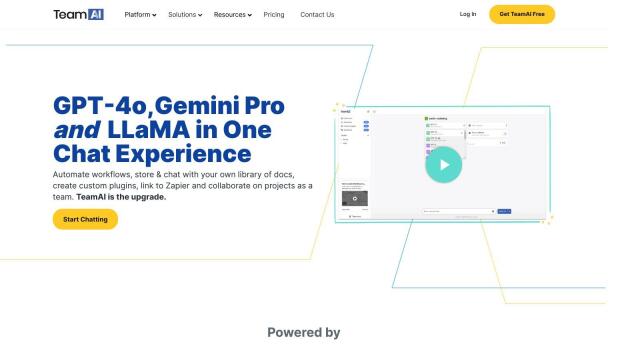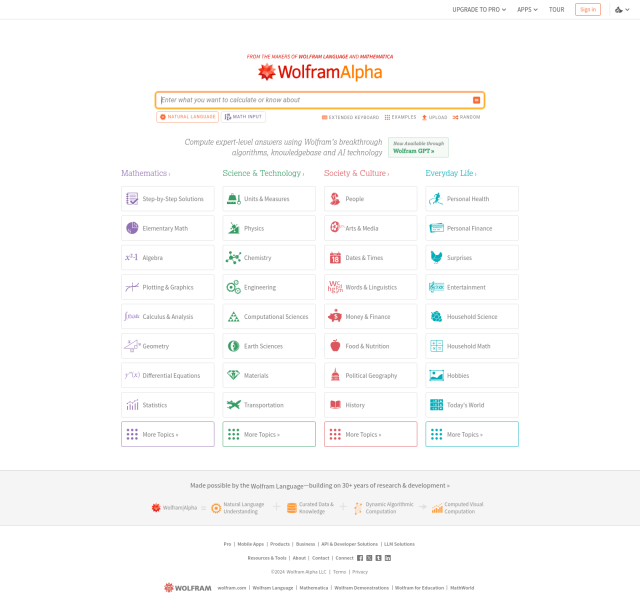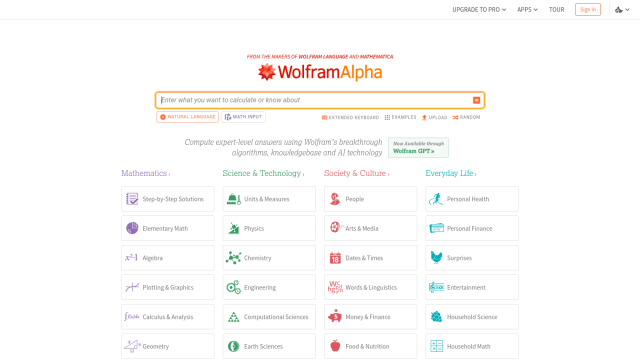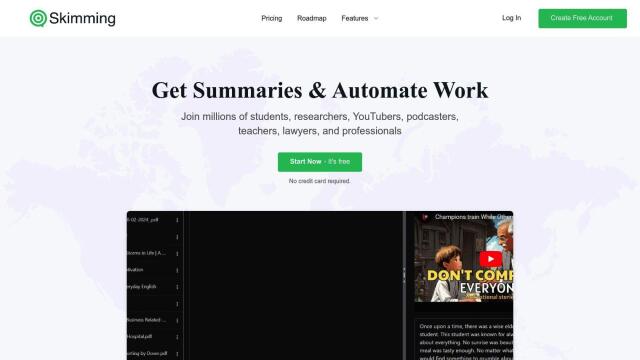
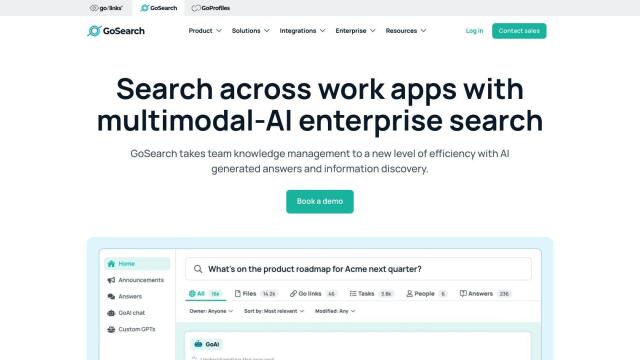
GoSearch
If you're looking for a Khoj alternative, GoSearch is a good option. It's an enterprise search platform that combines multimodal AI technology for immediate answers and information discovery across internal systems. With more than 100 connectors to data sources, it can search and retrieve documents, notes, tasks, files and people in cloud apps. It also integrates with tools like Notion, Google Docs, Jira and Confluence, so it's good for teams with a variety of workflows.


Otio
Another option is Otio, an AI-native workspace for research. It comes with tools for summarizing and chatting with documents using AI models like GPT-4o and Claude 3. Otio supports more than 20 languages and can handle long documents, including PDFs and videos. It's good for researchers, students and analysts who need to find and organize lots of information.

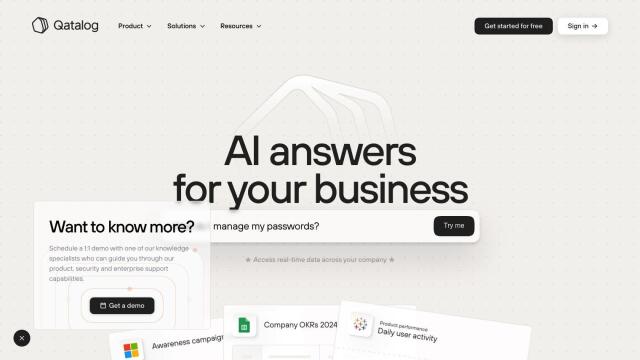
Qatalog
If you're looking for something more enterprise oriented, Qatalog is an information retrieval system that's designed to find what you need across an organization. It uses multiple large language models to search files and applications, and it can provide direct answers with source material validation and permission awareness for sensitive information. Qatalog is designed for fast onboarding, enterprise-level security and concierge support, so it's a good option for companies.

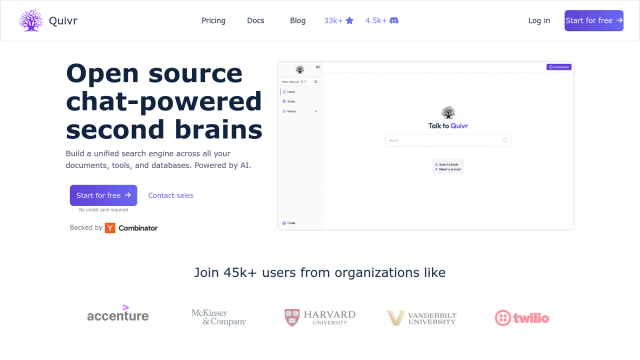
Quivr
Last, Quivr is an open-source personal productivity assistant that incorporates AI technology for a single search engine across documents, tools and databases. It can handle a variety of file formats and lets you customize AI models for different tasks. With private and local alternatives to OpenAI models and enterprise-ready deployment options, Quivr is designed to be a good option for personal productivity and data security.

